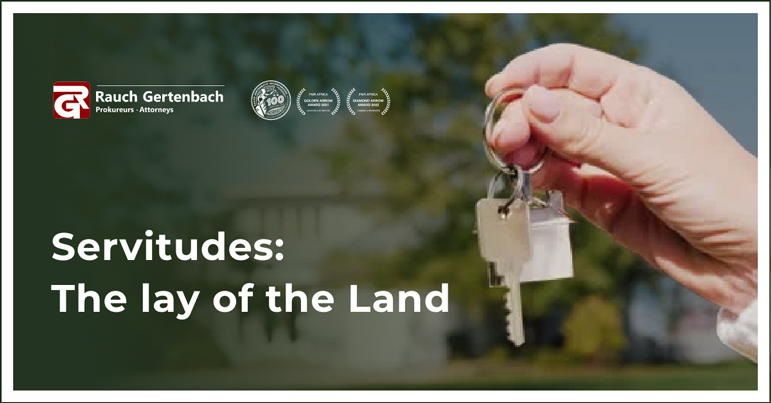Servitudes: The lay of the Land
Ownership, which can be defined as a right to one’s own property, is theoretically the most comprehensive real right a person can have, allowing an owner to use, enjoy, possess, or alienate their property. A property owner may however realise that they have received a raw deal on this so-called comprehensive right if they were not aware of the limitations imposed on their rights by servitudes.
A servitude is one of the limited real rights that one person can have over the immovable property of another, allowing the servitude holder to benefit from the property in some way or prohibiting the owner from exercising one or more of their normal rights.
A servitude usually originates from an agreement between two or more parties or landowners and is registered against the Title deeds of the relevant properties in the Deeds office.
The South African common law draws a distinction between personal and praedial servitudes. The most important distinguishing characteristic being that personal servitudes are registered against land in favour of a person, while a praedial servitude is held by one property over or in favour of another.
Personal servitudes therefore vests in the servitude holder and lapses upon effluxion of the specified period of time, the death of the natural person, dissolution of a juristic person or by agreement. The most common example of a personal servitude is a usufruct registered over immovable property in favour of a natural person. The effect hereof is that the personal servitude holder (usufructuary) has the right to live in the property, profit from any income that the property may generate and use the property exclusively. This imposes a limitation on the owner’s rights to his own property.
In the case of a Praedial servitude, the servitude is registered by one property over or in favour of another and therefore remains in existence irrespective of whether the property is transferred to different owners. An example hereof is a right of way servitude registered over a property (the servient property) enabling the owner of another property to use, for crossing purposes, a specified piece of land belonging to the servient property owner. A praedial servitude may be created in perpetuity or for a limited period, in which case the owner of the land affected thereby may apply to have the title deeds endorsed with the lapsing of the servitude once the specified time period has ended.
It is important to establish in which ways your rights as a potential property owner could be limited before the acquisition of a property. A servitude may impact the value of a property, the practicality of using it for the intended purposes and the likelihood of being able to resell the property shortly after acquisition. It is therefore of utmost importance that prospective purchasers research the property thoroughly and discuss any servitudes, title deed conditions and other possible limitations burdening the property, with their conveyancers.
Contact our Aleida for any questions on aleida@rgprok.com or 044 601 9900. www.rgprok.co.za
Article by: Aleida Kraamwinkel (LLB) – Candidate Attorney
___
Disclaimer
Nothing contained in this publication is to be considered as the rendering of legal advice for specific cases, and readers are responsible for obtaining such advice from their own legal counsel. This publication is intended for educational and informational purposes only.







